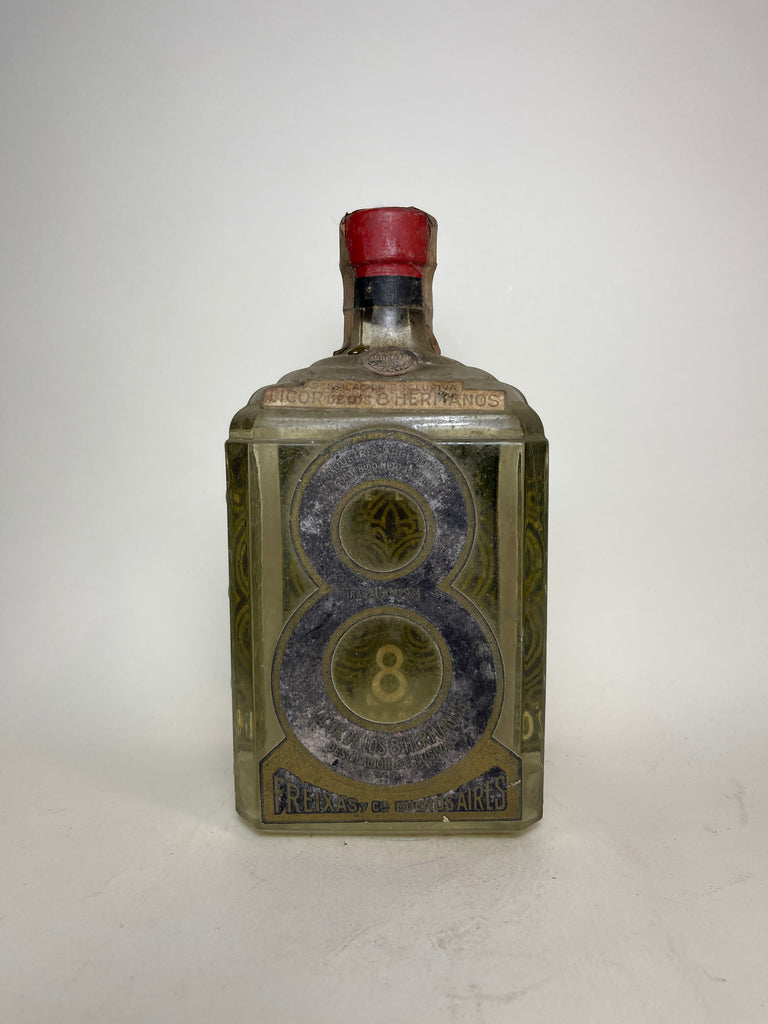Era: 1930s
ABV: Not Stated
Volume: 100cl
•
For the new generations, anise is an almost unknown product. But for those who comb gray hair, it is synonymous with candies and a high-alcohol liquor that receives its name from the fruit of the plant with which it is usually made: pimpinella anisum, known in Spanish as "anise".
Anise is consumed in almost the entire Mediterranean basin, under different names: from Chinchón anise, pastis from Marseille, ouzo from Greece and arak from Turkey.
Thanks to its multiple migrations, Argentina was no exception and in 1916 a brand of anise called 8 Hermanos emerged, the work of an immigrant from Tarragona named Antonio Freixas, who in 1891 had founded an import and export company.
The name of the brand responds to the eight children of the Catalan, since he had four from his first marriage and four from his second. According to bartender and expert Ariel Lombán, it was the then Argentine president Victorino de la Plaza who received the first bottle of anise produced by the company.
According to the Vinómanos site, this sweet-cut Argentine liquor was obtained by distilling anise seeds; He immediately obtained popular taste, and came to integrate the court of suppliers of the Spanish Royal House, governed at that time by Alfonso XIII, in the year 1921.
After Antonio's death, the company remained in the hands of his son José Freixas, who made the brand prosper. Decades later, in the 1970s, the firm not only produced aniseed in a sweet version (blue label, with 36% alcohol), and dry (red label, with 38%), but also, by license from the company Cointreau, also manufactured that liquor in Argentina.
The company closed in 1977, and Fernando Freixas, a descendant of Antonio, founded the company Bodega Tres Blasones S.R.L., which continued to produce Cointreau. The production of 8 Hermanos anise became part of the Cusenier group and is currently in the hands of Pernod Ricard Argentina.
Unfortunately, and unlike what happened with some nationally-produced amaros and appetizers, 8 Hermanos anís failed to rejuvenate its image and was thrown away as the typical “grandparents' liquor”.
Translated from "Anís 8 Hermanos: de destilado popular a liquor olividado, historia de un licor argentino y centenario" in Cucina (29 June, 2021).













